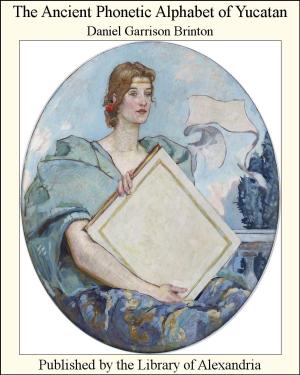Cosmic Consciousness: The Man-God Whom We Await
Nonfiction, Religion & Spirituality, New Age, History, Fiction & Literature| Author: | Alexander James McIvor-Tyndall | ISBN: | 9781465524355 |
| Publisher: | Library of Alexandria | Publication: | March 8, 2015 |
| Imprint: | Language: | English |
| Author: | Alexander James McIvor-Tyndall |
| ISBN: | 9781465524355 |
| Publisher: | Library of Alexandria |
| Publication: | March 8, 2015 |
| Imprint: | |
| Language: | English |
The chief difference between the religions and the philosophies of the Orient and those of the Occident, lies in the fact that the Oriental systems, methods, and practices, emphasize the assumption that the goal of these efforts, is attainable at any moment, as it were. That is, Oriental religion—speaking in the broad sense—teaches that the disciple need not wait for the experience called death to liberate the Self, the atman, from the enchantment or delusion, the maya, of the external world. Indeed, the Oriental devotee well knows that physical death, mrityu, is not a guarantee of liberation; does not necessarily bring with it immortality. He well recognizes that physical death is but a procedure in existence. Death does not of itself, change the condition of maya, in which the disciple is bound until such a time, as he has earned liberation—mukti, which condition may be defined as immunity from further incarnation. Immortality is our rightful heritage but it must be claimed,—yea, it must be earned. It is a mistake to imagine that death makes man immortal. Immortality is an attribute of the gods. But since all souls possess a spark of the divine essence of Brahman (The Absolute), mukti may be attained by earnest seeking, and thus immortality be realized. This condition of awakening, is variously named among Oriental sages and chelas, such for instance as glimpsing the Brahmic splendor; mutki; samadhi; moksha; entering Nirvana; becoming "twice-born." In recent years there have come to light in the Occident a number of instances of the attainment of this state, and these have been described as "cosmic consciousness;" "illumination;" "liberation;" the "baptism of the Holy Ghost;" and becoming "immersed in the great white light." Baptism, which is a ceremony very generally incorporated into religious systems, is a symbol of this esoteric truth, namely the necessity for Illumination in order that the soul may be "saved" from further incarnations—from further experience. The term cosmic consciousness as well describes this condition of the disciple, as any words can, perhaps, although the term liberation is more literal, since the influx of this state of being, is actually the liberation of the atman, the eternal Self, from the illusion of the external, or maya.
The chief difference between the religions and the philosophies of the Orient and those of the Occident, lies in the fact that the Oriental systems, methods, and practices, emphasize the assumption that the goal of these efforts, is attainable at any moment, as it were. That is, Oriental religion—speaking in the broad sense—teaches that the disciple need not wait for the experience called death to liberate the Self, the atman, from the enchantment or delusion, the maya, of the external world. Indeed, the Oriental devotee well knows that physical death, mrityu, is not a guarantee of liberation; does not necessarily bring with it immortality. He well recognizes that physical death is but a procedure in existence. Death does not of itself, change the condition of maya, in which the disciple is bound until such a time, as he has earned liberation—mukti, which condition may be defined as immunity from further incarnation. Immortality is our rightful heritage but it must be claimed,—yea, it must be earned. It is a mistake to imagine that death makes man immortal. Immortality is an attribute of the gods. But since all souls possess a spark of the divine essence of Brahman (The Absolute), mukti may be attained by earnest seeking, and thus immortality be realized. This condition of awakening, is variously named among Oriental sages and chelas, such for instance as glimpsing the Brahmic splendor; mutki; samadhi; moksha; entering Nirvana; becoming "twice-born." In recent years there have come to light in the Occident a number of instances of the attainment of this state, and these have been described as "cosmic consciousness;" "illumination;" "liberation;" the "baptism of the Holy Ghost;" and becoming "immersed in the great white light." Baptism, which is a ceremony very generally incorporated into religious systems, is a symbol of this esoteric truth, namely the necessity for Illumination in order that the soul may be "saved" from further incarnations—from further experience. The term cosmic consciousness as well describes this condition of the disciple, as any words can, perhaps, although the term liberation is more literal, since the influx of this state of being, is actually the liberation of the atman, the eternal Self, from the illusion of the external, or maya.















